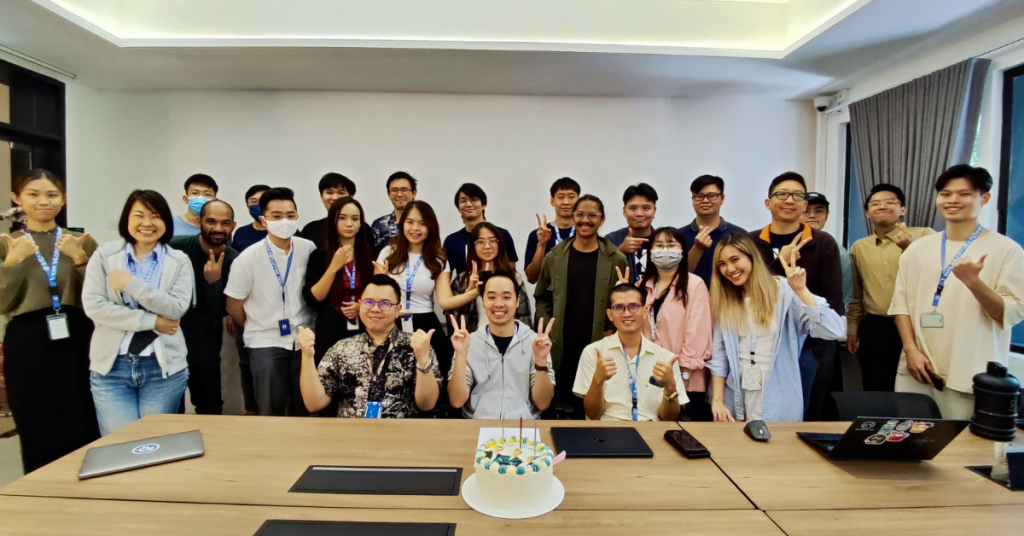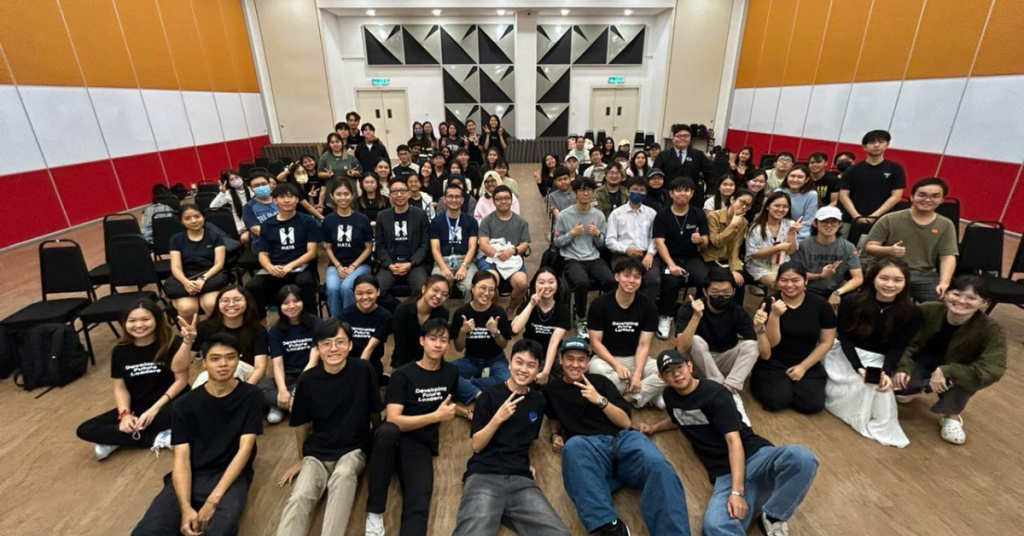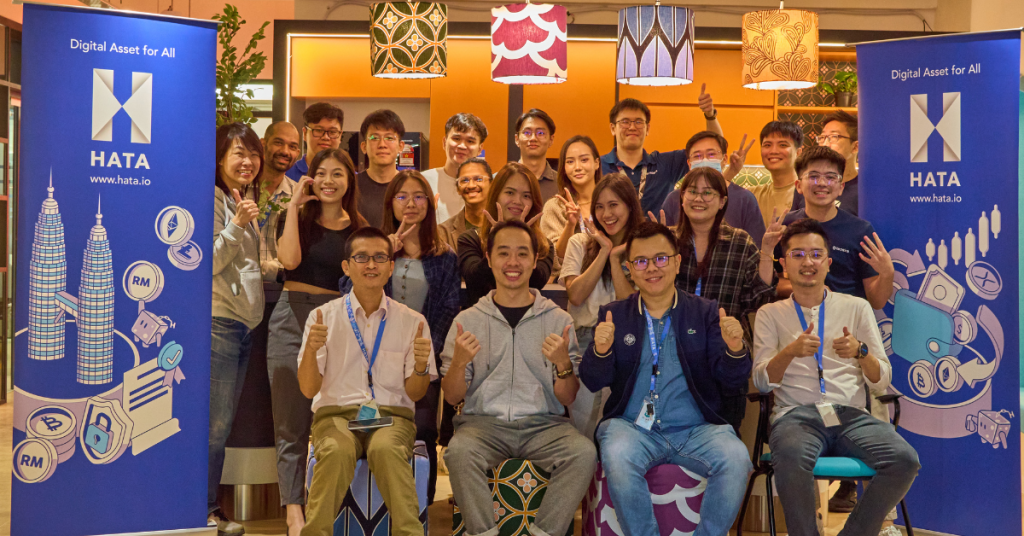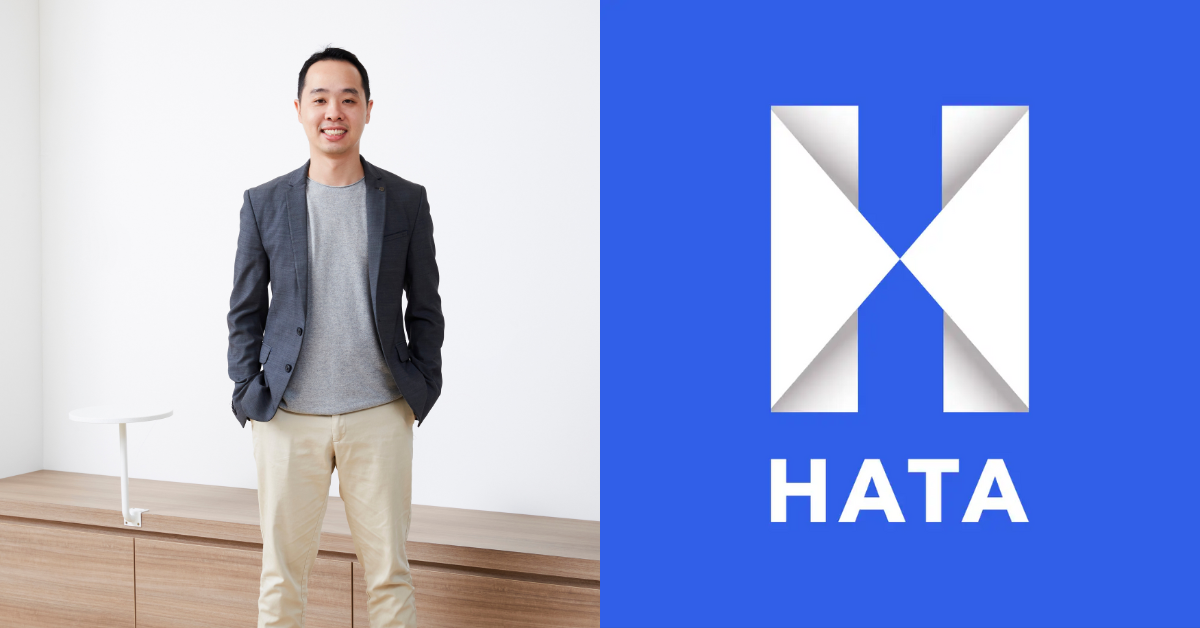I don’t often see Malaysian startups that manage to bag big cheques, especially from US-based funds.
But one homegrown startup that has managed to do it this year is Hata.
Hata is a licensed digital asset exchange based right here in Malaysia, and just recently, it raised US$4.2 million in seed funding. The capital will be used to develop innovative products, giving the startup a competitive edge in the region.
So, how did they do it?
First of all, what is Hata?
Hata bridges the gap between the traditional financial system and the world of cryptocurrencies, allowing users to easily buy, sell, and access digital assets with fiat currencies like the Malaysian Ringgit (MYR) and US Dollar (USD).

Currently, Hata is Malaysia’s only dual-licensed exchange, regulated by both the Securities Commission Malaysia and the Labuan Financial Services Authority.
With these licences, Hata operates two distinct platforms: a platform for Malaysians to buy and sell cryptocurrencies in MYR, and a global platform where users worldwide can trade in USD.
The goal is to make cryptocurrency secure, accessible, and user-friendly.
Raising up the fundraising process
Hata’s fundraising journey began over a year ago when they started searching for the right institutional investors.
Initially, the team focused on Malaysia, then expanded their efforts to Singapore, before eventually connecting with investors in the United States.
They secured a term sheet in April and closed the deal six months later in October, following extensive due diligence by the investors and after obtaining the necessary regulatory approvals.
“There are many memorable moments, but one that really stood out was during our initial fundraising efforts, a well-known Malaysian investor I pitched to tried to lowball us by offering a valuation below even our pre-seed level,” co-founder and CEO, David, revealed.
“When we politely declined and made a counteroffer at a valuation that we believe were far more reasonable, they withdrew their offer, telling us we were ‘naïve’ to even start an exchange business. Fast forward today, we successfully secured funding from institutional investors in the US at a fair valuation, validating our approach and perseverance.”

Investors who make a low offer oftentimes don’t fully believe in the business or the founders’ long-term potential. “This type of investor is not the ideal partner to have on your cap table,” David reminded.
The key lesson here, David said, is to start fundraising early, well before funds are urgently needed.
This way, startups can be in a strong position to turn down offers that undervalue their business.
Another key lesson he shared is the importance of sourcing and shortlisting the right prospective investors for your business. To David, the “right” investor typically meets three essential criteria:
- Has genuine interest and available capital: Many investors may show interest simply to learn more about your industry, without any real intention or capacity to invest. Filtering them out means you can focus investors who are ready to commit.
- Understands your industry: Engaging with investors who already have experience in your sector, or have made investments in a similar space, improves the quality of conversations and your chances of success.
- Has the right mandate from their investment committee or Board: Some VCs have strict mandates that limit them to specific industries.
With these criteria, startups can significantly increase the chances of finding valuable partners who bring capital and expertise, and do so with less time.
David said, “In hindsight, our fundraising process could have been considerably shorter had we adopted this approach from the start.”
He also pointed out that fundraising is truly a full-time commitment. He believes that the many roles of a “CEO” includes being a full-time fundraiser.
“Over the past year, I dedicated at least half of my time to the process—sourcing and pitching to investors, negotiating terms, securing a term sheet, bringing in additional investors to complete the round, finalising agreements, obtaining regulatory approvals, and closing the deal,” he said.
But you might wonder, what about solo founders? How are they able to balance fundraising with the demands of building and running a business?
David acknowledges that this would be extremely challenging, if not impossible. His advice is to seek out strong co-founders who can support you from day one.
“Having co-founders enables the business to reach multiple milestones simultaneously, which is crucial in a fast-paced, highly competitive industry where consumer demands shift quickly,” he said.
Searching beyond Malaysia
More than securing a significant cheque, Hata was able to secure international investors. The CEO believes that there are several factors that allowed for this.
This first tip is to design your solution, services, or platform to scale globally. Hata, for instance, was built from day one with scalability in mind. The team has obtained all the appropriate regulatory approvals, enabling the startup to onboard users from around the world.
Similarly, David emphasises having a clear roadmap for international expansion.
“In our case, we presented a detailed plan to use the funds to grow Hata’s user base both within Malaysia and abroad, showcasing our commitment and readiness for a much larger growth,” he said.
Since global expansion and scalability are two big focuses, it’s critical that the startup is addressing a universal pain point, solving a problem that extends beyond Malaysia.
David concluded, “Fundraising opportunities here in Malaysia are more limited compared to markets like Singapore and the US. Broadening your search to include international investors can significantly increase your chances of securing funding on more favourable terms.”
But it’s not that local founders don’t want global investors. It’s whether global investors actually want to invest in Malaysian companies.
“A healthy dose of skepticism is natural among investors, whether in Malaysia or abroad,” David said about the matter. “However, this shouldn’t discourage Malaysian startups from reaching out and trying.”
Harnessing Malaysian talents
Moving forward with their fresh funds, Hata’s aspiration is to become a one-stop hub for digital assets and blockchain innovation, not just in Malaysia but across the entire region.

The startup’s partnership with pitchIN marks the first step towards achieving this goal. Through this collaboration, Hata and pitchIN enable businesses in Malaysia to raise funds through digital tokens and list them on an exchange for trading in one seamless process.
With their regional and global ambitions, it sounds like Hata might have bold dreams of moving its headquarters abroad. But that couldn’t be further from the truth.
“We have no plans to move our headquarters elsewhere, as we are fully committed to building and growing our team locally,” David shared. “We are dedicated to nurturing local talent and advancing the blockchain ecosystem in Malaysia.”
- Learn more about Hata here.
- Read other articles we’ve written about Malaysian startups here.
Featured Image Credit: Hata

